Reading Time: 5 minutes Crop assurance program lead gives irrigated farmers a recap of disease prevalence in crops throughout Alberta
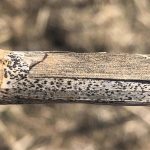
A look at disease prevalence in Alberta crops in 2025
Early stripe rust in the growing season increases its chances to spread exponentially
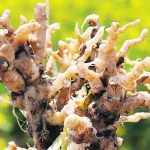
Scouting for disease in canola crops
Alberta agronomist shares his knowledge of four big crop diseases along with how to find and control them in your fields
Reading Time: 6 minutes Inspecting your canola fields for early signs of disease can save you plenty of headaches in the long run.

Learn more about blackleg management in canola
Reading Time: < 1 minute Although scouting for blackleg (and assessment of potential damage) usually occurs near the end of the growing season, the most critical stage of infection is actually at the cotyledon stage. Using available videos, graphics and explanations to clarify the key blackleg resistance concepts can help farmers with proactive decision-making for maximum disease management. Browsing a […] Read more
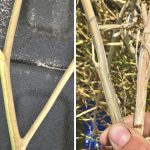
Researchers study verticillium yield losses
Team behind blackleg and clubroot yield loss models tackles new canola disease
Reading Time: 3 minutes Glacier FarmMedia – Canola industry leaders have been worried about verticillium stripe and its impact on crop yields for several years. Reports out of Europe suggest the fungal disease could cause losses of 10 to 50 percent on oilseed rape. However, extreme losses are usually confined to a small number of fields in England and […] Read more

DeKalb pulls two ‘inconsistent’ canolas off market
Up against an “inconsistency of grower experiences” with the seeds’ yields in 2019, Bayer Canada is yanking two of its DeKalb TruFlex canola hybrids from the market. DeKalb’s DKTF 92 SC and DKTF 94 CR will not be available for 2020, Bayer said. Canola growers who have already booked those seeds for this spring are […] Read more
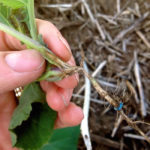
Five ways to help keep blackleg out of your fields
Three out of four fields in Western Canada are showing blackleg,” said Justine Cornelson, agronomy specialist with the Canola Council of Canada. For the last 10 years or so, the incidence of blackleg has been low on the Prairies, but lately, she said, “we’re starting to see a slight trend upwards.” Cornelson was speaking at[...]
Read more
Read more

Canada working to end China’s canola block, Freeland says
Montreal — The Canadian government is working hard to reopen Richardson International’s Canadian canola markets in China, says Chrystia Freeland, Canada’s minister of foreign affairs. “We’re working closely with Canadian farmers and Canadian industry,” Freeland said in a brief interview after speaking at the Canadian Crops Convention (CCC) here Wednesday. “Our embassy is very focused[...]
Read more
Read more

China’s block on canola seen as blowback from diplomatic spat
Montreal — Canola industry leaders attending the first Canadian Crops Convention here this week say they don’t know why China has abruptly blocked imports of Canadian canola from Richardson International, Canada’s biggest grain company. But according to a senior Richardson official it’s in retaliation to the diplomatic spat between China and Canada over the arrest[...]
Read more
Read more
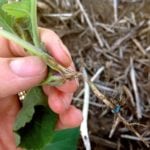
Understanding canola-resistance labels
Reading Time: < 1 minute A new document called “Understanding Blackleg Resistance” that explains blackleg-resistance genes and two-part labels will help growers identify which resistance groups may be best suited for the current pathogen population in their fields. Read more: Canola producers get two new tools in the fight against blackleg A two-part label will first list the overall resistance: R[...]
Read more
Read more
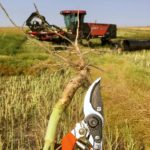
Canola producers get two new tools in the fight against blackleg
Tools to estimate yield loss and pinpoint the strain infesting your fields can help reduce the economic hit
Reading Time: 3 minutes Blackleg has become an expensive problem for canola producers, but growers will soon have two new tools to reduce the economic impact of the disease. “Blackleg wasn’t a real concern even a few years ago, but now it’s becoming increasingly important,” said Stephen Strelkov, a professor of plant pathology at the University of Alberta. “This[...]
Read more
Read more

